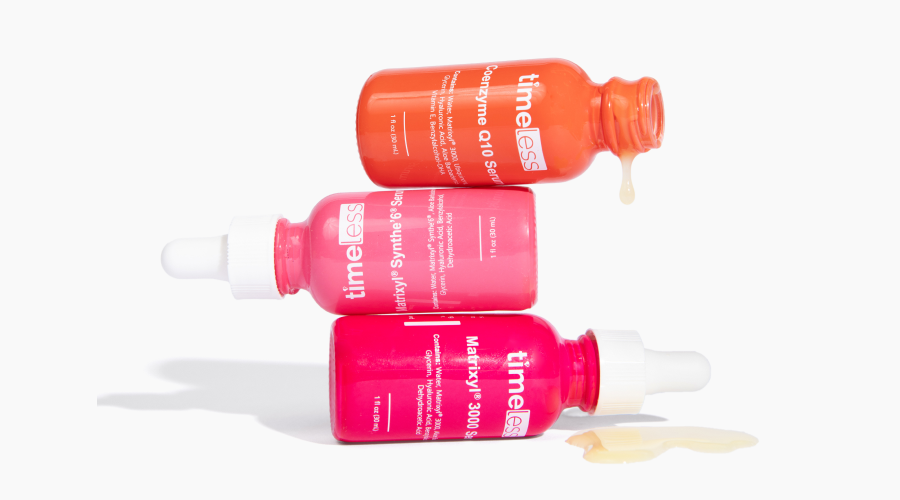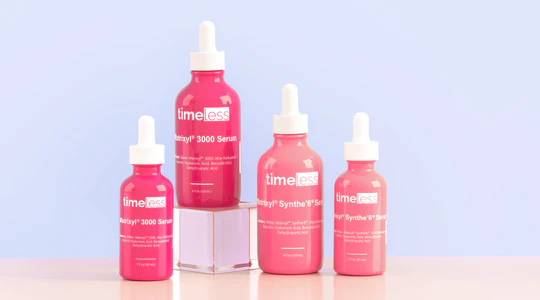As restrictions ease and the weather warms up, the number one destination this summer has got to be the patio! But the joys of open-air dining and outdoor socializing can leave our skin dangerously exposed to UV damage. With the extended patio season in full swing, sunscreen is a must for helping to protect your skin, especially during those peak midday hours.
Depending on which sunscreen you use, it turns out that how you layer it with your serum and moisturizer can make or break its effectiveness. Not only that, but serums high in antioxidants can actually fortify the skin against infrared radiation, which penetrates the skin at a deeper level.
Esthetician and Timeless Product Knowledge Specialist, Shelly Leggins notes, “Did you know that it’s not actually sunlight that damages your skin, but the UV rays that reflect off surfaces like sand, water and even grass, or even bounce off a car windshield and penetrate into your skin. Wearing a daily SPF is a vital part of our skin care routine, not only in the hot summer months, but all year long.
There are Two Types of Sunscreen! Chemical Versus Physical
The active ingredients in sunscreen filter UV rays from the sun, protecting the skin and maintaining stability in sunlight. According to the EWG, the most common sunscreens contain chemical filters, and typically include a combination of two to six of these ingredients: oxybenzone, avobenzone, octisalate, octocrylene, homosalate and octinoxate.
Chemical sunscreens need to be applied FIRST, before your serum or moisturizer, in order to properly absorb into the skin.
Physical sunscreens, also known as sun blocks or mineral UV filters contain zinc oxide or titanium dioxide. They sit on top of the skin, creating a barrier that will not allow other products to penetrate.
Physical sun blocks need to be applied AFTER your serum and moisturizer.
For both physical and chemical sunscreens, apply your makeup afterwards, while in the case of a powder mineral-based sunscreen, this can be applied after your makeup, and is great for re-application since it won’t disturb your makeup!
How Serums Can Improve the Effectiveness of your Sunscreen
Sunscreens provide broad spectrum protection from the sun, both UVB – the rays that cause your skin to burn, as well as the UVA rays - which cause signs of aging such as wrinkles, fine lines and sun spots. But sunscreen cannot block the total solar energy that reaches your skin. Solar energy includes infrared radiation which penetrates deeply into the skin, responsible for causing free radicals. Recent studies suggest additional topical measures can be applied to the skin to further reduce damage leading to photo-aging and skin cancer. Recommended antioxidants include vitamin E and Vitamin C, and tea extracts such as echinacea pallida extract, gorgonian extract and chamomile essential oil.
Applying a serum with antioxidants, such as 20% Vitamin C + E Ferulic Acid then layering with a physical SPF can provide significant additional protection against the sun. The high concentration of L-ascorbic acid promotes healthy cell turnover, while brightening and protecting the skin!













